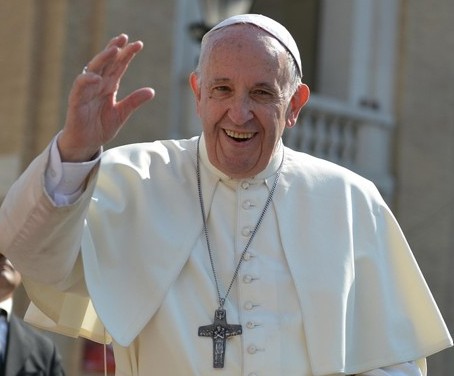
by Fitzcrittle
In the wake of the sexual abuse charges made against high profile men, documented in Surviving R. Kelly and the harrowingly detailed HBO documentary Leaving Neverland – in which two men claim to have been sexually assaulted by Michael Jackson when they were children – fans, media outlets, and the general public are left to answer some very difficult questions.
Firstly, do we submit to cancel culture, write off these important musical figures, and censor their respective catalogs? Secondly, does our reluctance to do so make us insensitive to victims of abuse? Lastly, how do we reconcile the talent of these artists with their crimes, particularly in cases like Jackson’s, where the artist is no longer here to either defend or redeem himself?
These questions are particularly difficult in the wake of the #MeToo movement, which helped to return a sense of empowerment to victims of sexual abuse. The result was a swift and widespread execution of vigilante social justice. The movement was a necessary step in the right direction toward greater equality and, hopefully, fewer abuses of power, but it also played a role in cancel culture’s ability to thrive — largely without question.
Historically speaking, artists haven’t always been great people. Pablo Picasso was notoriously misogynistic, Lewis Carroll, who gave us Alice in Wonderland, was rumored to be a pedophile, and the legendary composer of the Romantic period, Richard Wagner, was viciously anti-Semitic. But if these people had been banished for their demons, the whole world would be deprived of their art.
There seems to be a direct correlation, however, between the amount of talent and influence an artist possesses, and the public’s willingness to “cancel” them. Rumors surrounding MJ being a pedophile, for example, were in circulation long before his death, yet many fans spent years dismissing them due to “alack of sufficient evidence.” The same is true of R. Kelly, who was given a second chance by the public in the wake of charges that he made child pornography in 2001 and 2002. Conversely, Offset came close to being canceled by the Twittersphere for cheating on Cardi B. Could this be because, in comparison to pioneers like Kelly and Jackson, Offset is less important to America’s musical identity?
Alexis Petridis of The Guardiansaid of this phenomenon in regards to Michael Jackson: “You can’t easily eradicate Jackson from history: too many people have too much of their lives bound up with his music. And perhaps you shouldn’t. Perhaps it is all right that his music continues to be heard, so long as it comes with a caveat: that it reminds us great art can be made by terrible people, that talent can be weaponised in the most appalling way, that believing an artist automatically embodies goodness because we like their work is a dreadful mistake that can have awful consequences.”
So maybe it is possible for us to condemn an artist’s actions while also continuing to appreciate his art. If we are to decide that Michael Jackson and R. Kelly have contributed enough musically to warrant continuous airplay, it will be a testament to the power of their music, not to who they were as people. Their songs may take on different – perhaps darker – meanings and their lyrics may become more complicated by historical context, but isn’t that a good thing? Shouldn’t art be complicated, messy, and difficult to grapple with? While there is an argument to be made for boycotting Kelly’s music to prevent him from reaping the profits of continual streams and record purchases, Jackson, for one, is no longer making money off his music. So, what is our incentive to banish his songs? Who are we punishing?
Maybe Jackson’s legacy can be as instructional and cautionary as it is toxic and painful. It’s possible that we have more to lose by trying to bury our offenders than by confronting them head on, coming to terms with what happened, directly discussing the problems, and, hopefully, healing in the process.
At the end of his Grammy award-winning standup special, The Age of Spin, Dave Chapelle demonstrates what this more complicated view of a public figure could look like. While acknowledging Bill Cosby’s simultaneous importance to the Black community and his abhorrent actions, Chapelle says, “The point is this: He rapes, but he saves. And he saves more than he rapes … but he probably does rape.”
Here, Chapelle gives us something of a roadmap for acknowledging that a man can be a monster and an important cultural influence, all at once. That beauty, again, will and should never make up for, soften, or redeem the heinous acts that Cosby (or anyone) has committed, but that beauty still does exist alongside, and separate from, the hideous things he’s done.
Simply shunning artists like MJ or Kelly out of mainstream consciousness does not erase the art which outlives their public favor. If anything, it just makes it easier for us to ignore serious issues. Nobody is asking you to support a particular artist if you find it unconscionable, but consider this: For every person who is offended by hearing a Michael Jackson song, there are 10 who find it transcendent, are transported by it, or even feel healed of their own traumas.
Perhaps, moving forward, we can approach both the artist and his art with a heightened level of nuance that art intrinsically demands. To what ends do we believe that justice can truly be served, after all, if sincere redemption is impossible from the start? Maybe a man can be admonished, and his art can be admired, all in a single breath.
- I Went to the MoMA PS1 Holiday Party – Popdust ›
- Interview: Morgxn Inaugurates New Music, Brings Hope to NYC … ›
- Madonna, Kanye And Jay-Z Unite Music Industry Elite To Launch … ›
- Woody Allen Sues After Amazon Drops Him (Finally) – Popdust ›
- Louis C.K. Performs Second Show at Comedy Cellar – Popdust ›
- Why ‘cancel culture’ doesn’t always work – CNN ›
- Cancel Culture Is Not Real—At Least Not in the Way You Think | Time ›
- What is cancel culture? Why we keep fighting about canceling … ›
- We need to separate the art from the artist | Vanderbilt Hustler ›
- CAN WE SEPARATE THE ART FROM THE ARTIST? | AESTHETICS … ›
- Why We Have To Separate The Art From The Artist, And Why We Can’t ›
- After Harvey, Should We Still Separate the Art from the Artist … ›
- On the impossibility of separating art from artist – The Stanford Daily ›
- Can You Separate Art From the Artist? – The New York Times ›
- BBC – Culture – Can you separate the artist from the art? ›
- #MeToo: what do you do when the art you love was created by a … ›














